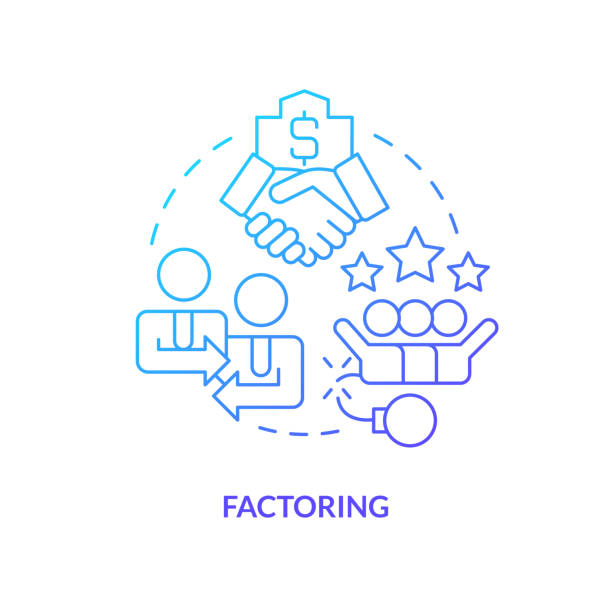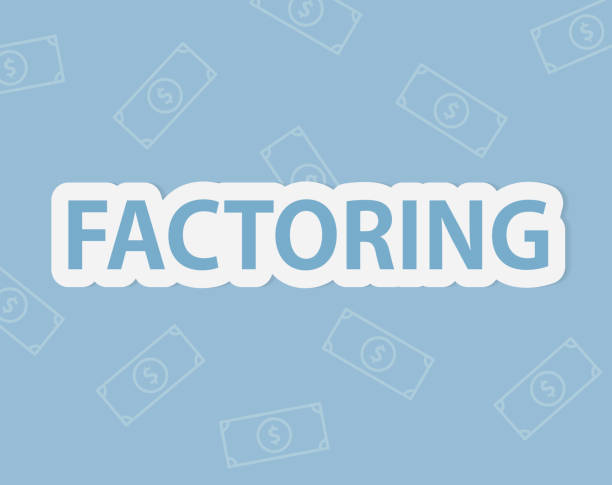Invoice Factoring Services – If you are a small business owner, you may have experienced cash flow problems due to slow-paying customers. Waiting for your invoices to be paid can affect your ability to pay your suppliers, employees, and other expenses. One way to solve this problem is to use invoice factoring services.
READ ALSO
- What Is Tax Exemption and How Does It Work?
- Enterprise Risk Management ERM: Overview
- Best Virtual Data Room: How to Choose for Your Business Needs
- Rollover IRA Brokerage Account: What It Is and How to Set It Up
- Vanguard Robo Advisor Fees: What You Need to Know
- Best Factoring Company: How to Choose for Your Trucking Business
- Insurance Estimate for Your New Car: How to Get it Accurate
What are invoice factoring services?
Invoice factoring services are a type of financing that allows you to sell your unpaid invoices to a third-party company, called a factor, in exchange for immediate cash. The factor will then collect the payment from your customers and pay you the remaining balance, minus a fee.
How do invoice factoring services work?
The process of invoice factoring is simple and straightforward. Here are the steps involved:
- You choose which invoices you want to factor in and submit them to the factor.
- The factor verifies the invoices and your customer’s creditworthiness.
- The factor advances you a percentage of the invoice value, usually between 70% and 90%, within 24 hours.
- The factor takes over the responsibility of collecting the payment from your customers within 30 to 90 days.
- Once the factor receives the payment, they pay you the remaining balance, minus a fee.
What are the types of invoice factoring services?
There are different types of invoice factoring services based on the variations in the services and agreements between the business and the factor. Some of the common types are:
- Recourse factoring: The business retains the credit risk of the customers and is liable to pay the factor if the customers default or dispute the invoices. The factor charges a lower fee for this type of factoring.
- Non-recourse factoring: The factor assumes the credit risk of the customers and cannot claim any payment from the business if the customers fail to pay. The factor charges a higher fee for this type of factoring.
- Advance factoring: The factor pays a percentage of the invoice value, usually between 70% and 90%, to the business within 24 hours of receiving the invoices. The factor pays the remaining balance, minus a fee, after collecting the payment from the customers.
- Maturity factoring: The factor pays the invoice value to the business after collecting the payment from the customers within a specified period. The factor charges a lower fee for this type of factoring as there is no interest involved.
- Bank participation factoring: The factor partners with a bank to finance the margin that is withheld from the advance payment to the business. This type of factoring allows the business to have complete finance of their accounts receivable.
- Full factoring: The factor provides all types of services to the business, such as protection from bad debt, collection, administration, etc. This type of factoring is also known as comprehensive or conventional factoring.
- Domestic and cross-border factoring: The factor operates in the same country as the business and its customers (domestic) or in different countries (cross-border). Cross-border factoring involves more complexity and risk due to different laws, currencies, and cultures.
- Supplier guarantee factoring: The factor guarantees to pay the suppliers of the business if the business fails to do so. This type of factoring helps the business to improve its credit rating and negotiate better terms with its suppliers.
- Disclosed and undisclosed factoring: The factor informs the customers of the business that their invoices have been assigned to them (disclosed) or keeps it confidential (undisclosed). Disclosed factoring is more common and transparent, while undisclosed factoring may require more legal documentation.
How to apply for invoice factoring services?
What are the benefits of invoice factoring services?
Invoice factoring services can offer several advantages for small businesses, such as:
- Improving your cash flow: You can get immediate access to working capital without waiting for customer payment.
- Saving time and resources: You can outsource the invoice collection process to the factor and focus on your core business activities.
- Increasing your sales: You can offer longer payment terms to your customers and attract more business.
- Growing your business: You can use the cash to pay your expenses, invest in new equipment, hire more staff, or expand your operations.
What are the drawbacks of invoice factoring services?
Invoice factoring services also have some potential disadvantages that you should be aware of, such as:
- Losing control over customer relationships: The factor will communicate with your customers regarding the payment, which may affect your rapport with them.
- Paying fees: The factor will charge you a fee for their service, which can vary depending on the invoice amount, duration, and risk. The fee can range from 1% to 5% of the invoice value per month.
- Assuming liability: Depending on the type of factoring agreement, you may be liable for unpaid invoices if your customers default or dispute the charges. This is called recourse factoring. Non-recourse factoring transfers the risk to the factor, but it may be more expensive and less common.
How to choose the best invoice factoring service for your business?
There are many invoice factoring companies in the market, each offering different terms and conditions. To find the best one for your business, you should consider the following factors:
- Reputation: You should check the reviews and ratings of the factor online and ask for references from other clients. You should also verify their accreditation and membership with industry associations.
- Rates and fees: You should compare the advance rate, factor rate, and any other fees or charges that the factor may impose. You should also ask about any hidden costs or penalties that may apply.
- Contract length and flexibility: You should read the contract carefully and understand the terms and conditions. You should also look for a factor that offers flexible options, such as choosing which invoices to factor, terminating the contract without penalty, or switching to another factor if needed.
- Customer service: You should look for a factor that provides responsive and professional customer service. You should also ask about their collection methods and how they will handle any disputes or issues with your customers.
What are the alternatives to invoice factoring services?
Invoice factoring services are not the only option for small businesses that need to improve their cash flow and access working capital. There are several alternatives that may offer lower costs, less risk, or more control over the invoice collection process. Some of the alternatives to invoice factoring services are:
Invoice financing
This is similar to invoice factoring, but instead of selling the invoices to a third-party company, the business borrows money from a lender using the invoices as collateral. The business is still responsible for collecting the payment from the customers and repaying the lender with interest and fees. Invoice financing may offer faster and easier approval, more flexibility, and lower costs than invoice factoring.
Business loan
This is a traditional form of financing that involves borrowing a lump sum of money from a bank or other financial institution and repaying it over a fixed period with interest and fees. The business can use the loan for any purpose and does not have to rely on customer payments. However, business loans may require a good credit score, collateral, or personal guarantee, and may have higher interest rates and stricter terms than invoice factoring.
Business line of credit
This is a revolving form of financing that allows the business to access funds up to a certain limit as needed and pay interest only on the amount used. The business can use the line of credit for any purpose and repay it at any time. A business line of credit may offer more flexibility, convenience, and lower costs than invoice factoring, but it may also require a good credit score, collateral, or personal guarantee, and may have higher interest rates and fees than invoice financing.
Trade credit
This is a form of financing that involves negotiating longer payment terms with suppliers or vendors. The business can defer the payment for goods or services until a later date, usually between 30 and 90 days. Trade credit can help the business to reduce its expenses, improve its cash flow, and build its credit reputation. However, trade credit may not be available for all suppliers or vendors, and it may require a good credit history, trust, or volume discounts.
Early payment discount
This is a form of financing that involves offering customers a discount for paying their invoices earlier than the due date. The business can increase its cash inflow, reduce its outstanding receivables, and improve its customer loyalty. However, an early payment discount may not be attractive for all customers, and it may reduce the profit margin or revenue of the business.
Dynamic discounting
This is a form of financing that involves using an online platform or software to offer customers variable discounts for paying their invoices earlier than the due date. The business can adjust the discount rate based on the payment date, the invoice amount, or the customer profile. Dynamic discounting can help the business optimize its cash flow, reduce its financing costs, and enhance its customer relationships. However, dynamic discounting may require a sophisticated system, integration, or collaboration with customers.
Supply chain finance
This is a form of financing that involves using a third-party platform or provider to facilitate early payment between buyers and suppliers in a supply chain. The platform or provider pays the suppliers earlier than the due date at a discount rate and collects the full payment from the buyers at the due date. Supply chain finance can benefit both buyers and suppliers by improving their cash flow, reducing their financing costs, and strengthening their supply chain relationships. However, supply chain finance may require a complex setup, coordination, or agreement among multiple parties.
These are some of the alternatives to invoice factoring services that small businesses can consider. Each option has its own advantages and disadvantages that depend on various factors such as the business size, industry, cash flow needs, credit history, customer base, supplier network, etc. Therefore, it is important for small businesses to compare different options and choose the best one for their needs.
In conclusion, Invoice factoring services can be a viable option for small businesses that need fast and easy access to cash. However, before you decide to use this type of financing, you should weigh the pros and cons and compare different factors to find the best one for your needs.

